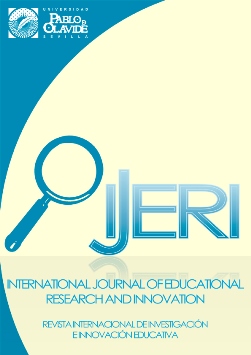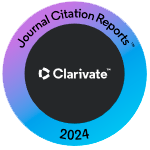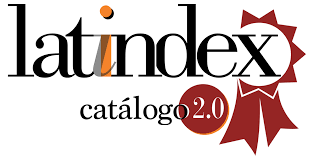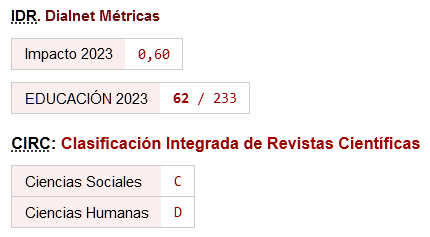Teachers training for digital inclusion from school 2.0 plan: case study
Keywords:
Information and communication technology, Training, Teacher, Digital skills, InclusionAbstract
The development of information and communication technologies has supposed a revolution into the society which has gone on marking the progression of the educational life of individuals. Therefore, different public governments have been designing for more than two decades programs and strategies including them to the teaching and learning processes. This circumstance has put in evidence the need of providing the teachers with all educative levels of a training which qualifies them for the inclusion of technologies in their class methodology. In this paper we present the results of a research carried out with teachers related to specific classes in private schools from Córdoba (Spain), due to the fact that one of the greatest problems that the technology development has produced is the so-called digital breach. By means of a transversal, no correlational descriptive study, we have formulated six questions through which we will determine the needs, complexities and views that the teachers of these classes have about their training. The most significant result indicates that even though they have received technology training, they think that this is not enough and that that training is not adapted to the type of students that they can find in their classes.
Downloads
References
Area, M (2011). Avance preliminar de resultados, ¿Qué opina el profesorado sobre el Programa Escuela 2.0? Proyecto de investigación, Las políticas de un «ordenador por niño» en España. Visiones y prácticas del profesorado ante el programa escuela 2.0. Un análisis comparado entre comunidades autónomas. Ministerio de ciencia e innovación. Dirección general de investigación y gestión del plan nacional i+d+i.
Boza, A., & Conde, S. (2015) Web 2.0 en educación superior: formación, actitud, uso, impacto, dificultades y herramientas Digital Education Review, 28, 45-58.
Cabero, J. (2004) Reflexiones sobre la brecha digital. En F. Soto y J. Rodríguez (coords), Tecnología, educación y diversidad: retos y realidades de la inclusión digital (pp. 23-42) Murcia, Consejería de Educación y Cultura.
Cabero, J., & Córdoba, M. (2009). Inclusión educativa: inclusión digital. Revista Educación Inclusiva, 2(1), 61-77.
Cheng, J., & Chang, C. (2006). Using computers in early childhood classrooms: teachers’ attiudes, skills and practices. Journal of Early Childhood Research, 4(2), 269-288.
Conole, G., & Alevizou, P. (2010). A literature review of the use of Web 2.0 tools in Higher education. A report commissioned by the Higher Education Academy. The Open University Walton Hall, Milton Keynes UK. Disponible en: http://www.heacademy.ac.uk/assets/EvidenceNEt/Conole_Alevizou_2010.pdf
Domingo, Mª C., & Marqués, P. (2013). Práctica docente en aulas 2.0 de centros de Educación Primaria y Secundaria de España. Pixel Bit, Revista de Medios y Educación, 42, 115-148.
García, M. C., & Cotrina, M. (2005). Descubriendo el valor de las tecnologías de la información y de la comunicación en la atención a la diversidad. Tavira, 20, 107-121.
García-Valcarcel, A., & Basilotta, V. (2012). Implantación del Programa Escuela 2.0. Análisis de un caso de Centro Rural Agrupado. EDUSER: revista de educação, 4(1). Recuperado de https://bibliotecadigital.ipb.pt/bitstream/10198/7722/1/108-326-1-PB.pdf
Gómez, M. (2015). Las TIC en los entornos educativos. EDMETIC, Revista de Educación Mediática y TIC, 4(2), 3-6. Doi:10.21071/edmetic.v4i2.3959.
Gialamas, V., Nikolopouiou, K., & Kutromanos, G. (2013). Student teachers’ perceptions about the impact of Internet usage on their learning and jobs. Computers & Education, 62, 1-7. doi: http://dx.doi.org/10.1016/j.compedu.2012.10.012
Marín V. (2017). The relationships between Augmented Reality and inclusive education in Higher Education. Bordón, 69(3). 125-142. doi:10.13042/Bordon.2017.51123.
Prensky, M. (2010). Teaching digital natives. Partnering for real learning. California: Crown.
Romero de Llanos, E. (2011). El programa escuela 2.0 en los centros de educación especial de la provincia de Badajoz (Extremadura). Trabajo de Fin de Máster. Documento inédito.
Travieso, J. L., & Planella, J. (2008). La alfabetización digital como factor de inclusión social: una mirada crítica. UOC Papers, revista sobre la sociedad del conocimiento 6. Recuperado de http://www.uoc.edu/uocpapers/6/dt/esp/travieso_planella.pdf
Downloads
Additional Files
- Tabla 7 (Español (España))
- Tabla 8 (Español (España))
- Tabla 9 (Español (España))
- Tabla 10 (Español (España))
- Tabla 11 (Español (España))
- tabla 12 (Español (España))
- Tabla 4 (Español (España))
- Tabla 5 (Español (España))
- Tabla 6 (Español (España))
- Tabla 3 (Español (España))
- Tabla 2 (Español (España))
- Tabla 1 (Español (España))











